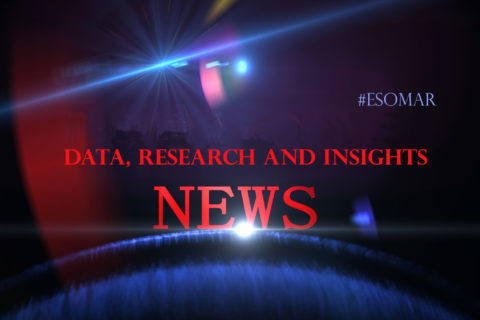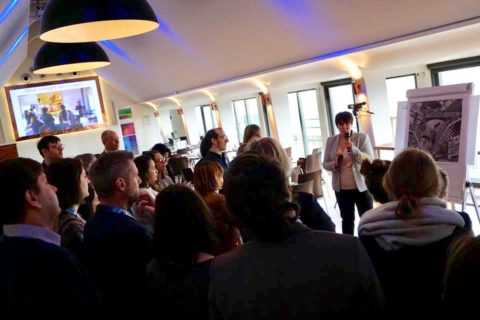By Estefanía Frontero
In its 23rd edition, in the City of Buenos Aires, the MArket INtelligence FESTival for Latin America gave us much to talk about. An event full of inspirational speeches, excellent training sessions and exhibitions, very talented and expert speakers, enriching networking, an unforgettable party and exquisite food… Everything we experienced in these very intense 3 days left us with a lot of learnings, but also opened up a lot of questions.
Many words echoed in the conference: artificial intelligence, machine learning, automation, internet of things, CRM, real time, digital communities, online panels, hypertargeting, social listening, etc. But there’s one word that resonated over the rest: challenges. The future of market research is surely full of challenges: how to incorporate new technologies, how to redefine our role as researchers, how to build and strengthen partnership with our clients. These challenges I’ll try and sum up below.
New technologies are taking over market research. The incorporation of innovative and digital tools is questioning the way in which we are used to investigate, our traditional working process and the skills required to process data. We are increasingly sharing our jobs with programmers and engineers. The incorporation of technologies also requires a cultural and organizational adaptation. And it takes time, of course. Our mindset doesn’t switch as fast as new technologies are developed.
These new technologies bring a lot of advantages:
- Speed and Agility. Reducing time and getting result faster.
- Combining different techniques and sources in the same study.
- Process Standardization. More control, optimization and quick problem solving.
- Deeper segmentation at a global, regional or local scale.
- Cost reduction. More respondents at a lower cost.
- Reducing steps from the traditional process, such as data coding and processing, or transcription of interviews.
- More resources for analysis.
There’s no doubt that the advantages are highly motivating. The goal is, at the end, to facilitate and simplify the operative steps of research process, and make data collection more efficient. The new technologies are especially useful for quantitative research: quick surveys, creative concept tests, product test, pricing. But they are also used for qualitative studies: online focus groups, digital communities, forums, chats, online interviews, image tagging. Their usage grows more and more. Even though there’s a long way to go until they are fully integrated, as we know that a great part of research is still traditional, we know that sooner or later, they’ll be an important part of our daily jobs.
But there’s no cause for alarm. This isn’t the end of research as we know it. New technologies don’t mean new methodologies, but only a new way of applying the methodologies and techniques we know so well. Simplification and efficiency are good for one major reason: making better deliveries. The main benefit we get from using digital tools is that they allow us more space and time for analysis, interpretation, understanding and strategic thinking. And we should take advantage of it.
And here goes another big challenge: how to redefine our role. It looks like an identity crisis, as we heard at the conference. A crisis of what it means to be a researcher. Today’s transformation and innovation oblige to transform ourselves. We can no longer be just “data providers”. We need to rethink our value and deliveries.
What will make our role relevant in the future? In the next paragraphs, I have summed up the highlights from the conference in this regard:
Start with the right question. Every research starts with a question. Only understanding what we are looking for, can we know how to achieve it. New technologies facilitate the how, but it’s our job to define the what.
Refine targeting. Looking beyond traditional segmentation and overcoming stereotypes, basing targeting on lifestyles, motivations and tensions. For example, we learned that millennials aren’t just a generation, they are a zeitgeist, a set of attitudes and values of the time that aren’t determined only by the age.
Mix and integrate. The new digital techniques don’t replace, but complement the traditional techniques. Knowing how best to integrate both, and to combine different sources to enrich research, is our expertise.
Increase engagement. Designing activities, boosters, motivators and adequate tone in order to orientate, in the best way possible, the data collection and obtain better answers.
Differentiate important from interesting. The abundance of data carries the risk of infoxication. Sometimes, less is more. Reducing the amount of KPIs and defining which will deliver more information, is also our task.
Transform data in information. Data is not explained on its own. It requires an explanation, a why. Data makes sense through our analysis, interpretation, synthesis and insights.
Transform information in understanding, and understanding in strategy. Data must be useful, and its utility is defined on decision making. If it allows us to make decisions, then it’s useful. It must be an input for strategic thinking. Finding opportunity spaces and paths to achieve them is our most relevant skill.
Based on these key learning, we can reposition ourselves. It’s all about enriching and adding value to make our job more relevant. Combining deep analytical perspective and actionable insights to transform our role into strategic partners and consultants of our clients. And that’s another challenge: how to strengthen our relationship with clients. The key is to stay close, understanding their needs and always being one step ahead.
And last but not least, we have another big challenge: how do we use data ethically. Finn Raben, ESOMAR Director General, reminded us of the importance of having and upholding codes. The Cambridge Analytica case put a question mark over our credibility and ethics. Undoubtedly, we have a moral responsibility over the use of data. And also, we have the power to use data to promote positive social changes, such as gender equality, for example. Or using our data to improve the lives of people with health problems, such as the uSound app improving hearing, develop with the help of market research. Or to promote national values and identity, building a strong country brand. Being ethical in the use of data, not only impacts on our role as professionals, but especially on our role within our communities.
The future we have ahead of us looks uncertain and full of barriers. It will require constant renovation, constant learning, and constant revision of what we do. We need to have the flexibility and adaptability to redefine us. And that is exactly what makes it thrilling. The more challenges we have, the more motivations to improve each day. Challenges empower us and make us grow… let’s go for more!
Estefanía Frontero, Sociology Student, UBA, was a YES Student Volunteer at ESOMAR LATAM 2018



1 comment
i really like the article